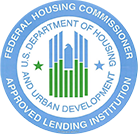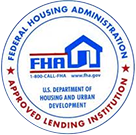Payment Change Date
The date when a new monthly payment amount takes effect on an adjustable-rate mortgage (ARM) or a graduated-payment mortgage (GPM). Generally, the payment change date occurs in the month immediately after the adjustment date.
Periodic Payment Cap
A limit on the amount that payments can increase or decrease during any one adjustment period.
Periodic Rate Cap
A limit on the amount that the interest rate can increase or decrease during any one adjustment period, regardless of how high or low the index might be.
PITI Reserves
A cash amount that a borrower must have on hand after making a down payment and paying all closing costs for the purchase of a home. The principal, interest, taxes, and insurance (PITI) reserves must equal the amount that the borrower would have to pay for PITI for a predefined number of months (usually three).
Points
A point is equal to one percent of the principal amount of your mortgage. For example, if you get a mortgage for $165,000 one point means $1,650 to the lender.Points usually are collected at closing and may be paid by the borrower or the home seller, or may be split between them.
Prepayment Penalty
A fee that may be charged to a borrower who pays off a loan before it is due.
Pre-Approval
The process of determining how much money you will be eligible to borrow before you apply for a loan.
Prime Rate
The interest rate that banks charge to their preferred customers. Changes in the prime rate influence changes in other rates, including mortgage interest rates.
Principal
The amount borrowed or remaining unpaid. The part of the monthly payment that reduces the remaining balance of a mortgage.
Principal Balance
The outstanding balance of principal on a mortgage not including interest or any other charges.
Principal, Interest, Taxes, and Insurance (PITI)
The four components of a monthly mortgage payment. Principal refers to the part of the monthly payment that reduces the remaining balance of the mortgage. Interest is the fee charged for borrowing money. Taxes and insurance refer to the monthly cost of property taxes and homeowners insurance, whether these amounts that are paid into an escrow account each month or not.
Private Mortgage Insurance (PMI)
Mortgage insurance provided by a private mortgage insurance company to protect lenders against loss if a borrower defaults. Most lenders generally require MI for a loan with a loan-to-value (LTV) percentage in excess of 80 percent.







